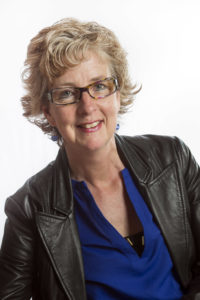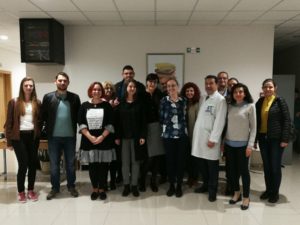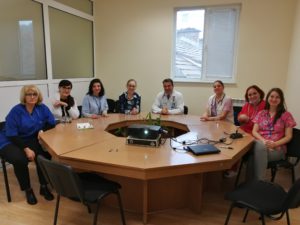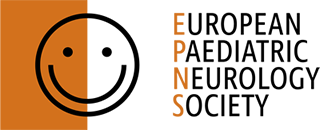The concept of the EPNS Visiting Teacher initiative: A volunteer professor / senior/ distinguished member of the EPNS, who is a recognised expert in a certain field, visits a nominated host centre in a country in Europe which is classified by the World Bank per capita income group 1, 2 or 3 for a short stay of intense teaching. This should be a new collaboration, and the scheme does not apply to programmes which have already been established. Travel and stay will be supported by EPNS. It may be considered that these visits will take place annually thereafter, if the first visit proves to be a success. Future visits will not be funded by the EPNS, and the local centre should establish a sustainable source of funding for the future.
The EPNS is delighted to announce 2 Visiting Teacher Awards for 2019:
Kazakhstan: Mrs Van der Louw from the Netherlands visited the National Research Center for Maternal and Child Health, Pediatric Neurology Department, Turan 32, Astana 20.05.2019 to 21.05.2019
We are delighted to share this report about the visit from Dr Raushan Kenzhegulova
 The National Research Center for Maternity and Childhood, with the financial support of the European Society of Pediatric Neurologists (EPNS), conducted a training seminar on the topic “Ketogenic diet in the treatment of children with severe epilepsy” from 20.05.2019 to 21.05.2019.Lecturer – nutritionist with many years of experience in this field and research, Mrs. Elles van der Louw, Medical Center of Erasmus University of Rotterdam, the Netherlands.Classes were held in the conference hall, 2 days, from morning to evening. 40 doctors – Neurologists, nutritionists and pediatricians from all over Kazakhstan gathered to attend the seminar.The lectures were full of information. The methods of interaction of the teacher with students were actively used.Listeners answered questions with interest and asked many questions themselves. We really liked the lecturer, with her sense of humor, she could relieve our fatigue and helped us to focus on the main thing.
The National Research Center for Maternity and Childhood, with the financial support of the European Society of Pediatric Neurologists (EPNS), conducted a training seminar on the topic “Ketogenic diet in the treatment of children with severe epilepsy” from 20.05.2019 to 21.05.2019.Lecturer – nutritionist with many years of experience in this field and research, Mrs. Elles van der Louw, Medical Center of Erasmus University of Rotterdam, the Netherlands.Classes were held in the conference hall, 2 days, from morning to evening. 40 doctors – Neurologists, nutritionists and pediatricians from all over Kazakhstan gathered to attend the seminar.The lectures were full of information. The methods of interaction of the teacher with students were actively used.Listeners answered questions with interest and asked many questions themselves. We really liked the lecturer, with her sense of humor, she could relieve our fatigue and helped us to focus on the main thing.
She very competently and enthusiastically and answered all our questions. The main thing that she taught us is to consider keto diets, gave us tools on keto diet that are necessary in practice, explained to us about the side effects. Now we can confidently perform the ketogenic diet on our own. During the non-lecture period, we continued to discuss the possibilities of the ketogenic diet and we were very pleased with the profound knowledge of Mrs Elles van der Louw. Especially about the features and difficulties of using a keto-like diet in cancer patients.
Thanks to the sponsors, organizers and personally to Mrs. Elles van der Louw for such a wonderful seminar!
Bulgaria: Professor Leena Haataja from Finland visited the Department of Paediatrics and Medical Genetics, Medical University-Plovdiv
 We are delighted to share this report about the visit from Professor Ivan Ivanov
We are delighted to share this report about the visit from Professor Ivan Ivanov
Let me express our heartiest gratitude to prof. Haataja for visiting our Division of Paediatric Neurology at the Department of Paediatrics and Medical Genetics of Plovdiv Medical University Hospital “St. George”. The visit ran the following schedule: In the morning of 21.11.2019 we made a tour in the department. In the next 90 minutes all colleagues in the neuropaediatric division gathered to present their scientific work and achievemnets. At 12:00 the lectures started in the new Auditorium building of the university. Twenty-five people attended the lectures, mainly paediatricians. neonatoligists, physiotherapists, etc. The lecture were interrupted frequently by questions and discussions. Lectures ended at 19:00 and  we walked to a restaurant for an informal dinner together with the neuropaediatricians of our department. The teaching was quite helpful as it disclosed the methodology and practice of follow-up of high risk neonates. Prof. Haataja was convincing and enthusiastic in her evidence-based presentations. We have already positive responses also from some of the attendees to the lectures.We thank to EPNS for providing this teaching. It will certainly improve the methodology of our performance in neurodevelopmental follow-up.
we walked to a restaurant for an informal dinner together with the neuropaediatricians of our department. The teaching was quite helpful as it disclosed the methodology and practice of follow-up of high risk neonates. Prof. Haataja was convincing and enthusiastic in her evidence-based presentations. We have already positive responses also from some of the attendees to the lectures.We thank to EPNS for providing this teaching. It will certainly improve the methodology of our performance in neurodevelopmental follow-up.
